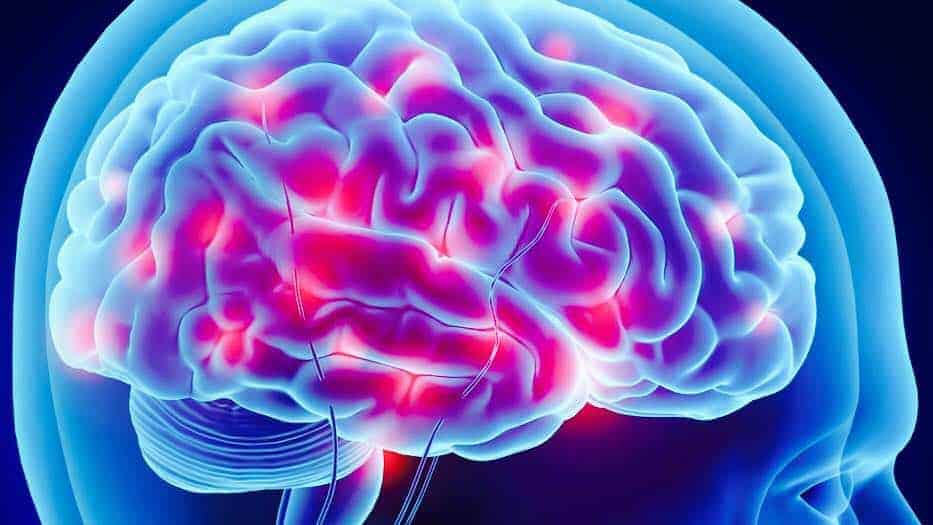Endorphins are classified as an “endogenous opioid neuropeptide.” In other words, these brain chemicals boost our overall mood and outlook, similar to morphine and other more powerful (and harmful) drugs. The bottom line: we can trigger enhanced endorphin production, which, in turn, will help us feel much better without the nasty side effects and risk of dependence.
To aid in this endeavor, we will describe eight different ways to boost endorphins in the brain. We can all experience an elevated mood and a more positive outlook on life by following these recommendations.
Eight Ways to Increase Endorphins
Here are eight ways to boost endorphins in the brain:
Endorphin booster #1: Laugh
Laughter truly is powerful. Various research has shown that laughter can help: boost immunity, reduce stress hormones, produce a sense of well-being, and, of course, release endorphins. The depressing side of this is that we laugh much less frequently as we get older. Children laugh upwards of three hundred times a day, while most adults laugh about five times daily. It’s time that we adults help to narrow this gap.
Endorphin booster #2: Get intimate
Evolution places a premium on reproduction, although it’s not necessary to reproduce to enjoy the health benefits of intimacy or sex. Research shows how acts of intimacy – touching, massaging, and intercourse – help to drastically reduce levels of stress hormones. Such intimate moments are not only essential to a close, loving relationship but our health and sense of security. Furthermore, intimacy stimulates the release of “feel good” endorphins in the brain.
Endorphin booster #3: Eat some chocolate
If we needed any more reasons to enjoy a piece of delectable chocolate, we’ve added another one to the list. In addition to the myriad health benefits of chocolate – promoting heart health, lowering cholesterol, reducing inflammation, etc. – chocolate also initiatives the release of endorphins. Other positive news is that we only need a small amount, about one or two small squares a day, to realize these benefits.
Endorphin booster #4: Eat spicy food
Do you ever wonder why some of us continue to engorge on spicy food despite the runny nose and watering eyes? Well, it may be due to the release of endorphins. The “pain” produced by spicy food is somewhat offset by the feelings of well-being created by the rapid discharge of endorphins in the brain. In addition, spicy food assists in the killing of pathogens and other bacteria while enhancing immune system function.
Endorphin booster #5: Listen to some music
Music has a distinct way of boosting our mood, and now we understand the scientific reason behind this phenomenon. Playing our favorite jams helps us feel better because of the quick release of endorphins in the brain. This effect is far more pronounced when we listen to music that matches our preferences. Those that love country music probably won’t experience an intense release of feel-good chemicals while listening to 2Pac, in other words.
Endorphin booster #6: Swallow some ginseng
Recently, the benefits of ginseng have manifested in several scientific and medical studies. Those who are fatigued and stress-ridden have continuously sung ginseng’s praises. Physiologically, ginseng supports various organs through the measured release of stress hormones, increasing endurance. In addition, ginseng may aid concentration and cognitive performance, treat certain cardiovascular conditions and stimulate the release of certain feel-good chemicals, including endorphins.
Endorphin booster #7: Inhale vanilla or lavender
It turns out that there is something behind the “aromatherapy” thing after all. Some aromas can help lift people’s moods by releasing endorphins into the body. In one particular study, patients that were ordered to undergo MRIs who inhaled vanilla reported a reduction in anxiety by 63 percent. It turns out that a proliferation of research exists that further supports the benefits of aromatherapy. “Don’t knock it ‘till you try it” is what we always say.
Endorphin booster #8: Workout with others
For those who prefer solo workouts, this may come as somewhat of a surprise. There is no doubt that exercise triggers the release of endorphins, but recent studies have shown that those who participate in group workouts may receive a bit extra endorphin boost. Regardless of one’s preferences, any exercise – with or without a group – causes the release of endorphins and other happy brain chemicals. For those still reluctant about participating in group cycling sessions, a solo period of jogging, aerobics, calisthenics, or weight lifting will still do the trick.
What Causes Low Endorphins?
The brain produces endorphins in the pituitary gland and hypothalamus during pleasurable activities or to counteract pain. They’re opioid transmitter that acts through five types of receptors. Endorphins aren’t just a feel-good hormone; they also help regulate thirst, appetite, blood pressure, and temperature.
Healthy endorphin levels result in a stable, cheerful mood, relaxation, and an enhanced ability to handle pain or stress. A person with an endorphin deficiency will have a greater risk of developing migraines, substance abuse, depression, and other mental problems. While scientists are still studying the exact causes of low endorphins, the following conditions or habits may play a role.
1. Lack of Exercise.
Since exercise releases endorphins naturally, a sedentary lifestyle will inhibit these feel-good hormones. When the body isn’t engaged in regular exercise, it can lead to depression, anxiety, and other mental health problems. Some doctors have even started prescribing exercise as a natural antidepressant and mood booster. Studies show that exercise may improve symptoms of depression as much as psychiatric medications.
Also, in 2008, researchers used positron emission tomography (PET) for the first time to scan athletes’ brains before and after exercise. They discovered an increase in endorphins in some brain regions following training, also known as a “runner’s high.”
So, a sedentary lifestyle could cause an endorphin deficiency simply because the hormone isn’t triggered by a stimulus such as exercising.
2. Mental Disorders Such as Depression.
When you have depression, it’s a catch-22 since it can cause endorphin levels to decline, which contributes to a low mood. For people with clinical depression, lifestyle changes such as exercise, proper sleep, a healthy diet, and meditation may not alleviate symptoms entirely. Low endorphins may cause mental disorders like depression, anxiety, or more severe conditions such as borderline personality disorder (BPD).
In treatment-resistant depression, doctors may recommend opioid treatments as a last resort, according to the American Journal of Psychiatry. Another study found that higher levels of opioid β-endorphin may positively impact people with depression due to its impact on the reward system. Higher endorphin levels can also reduce symptoms of PTSD and other stress-related psychiatric disorders.
3. High Levels of Stress.
When you don’t have a healthy outlet for stress, your body won’t produce enough endorphins to regulate your mood. Over time, chronic stress could cause mental disorders such as depression or anxiety and physical conditions like heart disease. Keeping your stress low in the modern world may seem challenging, but specific techniques can help you manage it. For a natural endorphin boost, try out these stress-relief methods below:
- Meditation: People have been meditating for millennia to lower stress, realize their true selves, and decompress from daily struggles. Best of all, you don’t need a gym membership or anything outside yourself to practice. Simply sit in a quiet, comfortable room with your legs crossed and back straight. Pay attention to your breath as you slowly inhale and exhale. Close your eyes and simply be, without judging or reacting to any stimuli. The more you practice, the greater happiness and inner peace you will feel.
- Deep Breathing: You can practice this along with meditation or by itself. Many different breathing techniques exist, but all of them positively impact stress. To start, you could try the 4-7-8 breathing method, which involves inhaling for 4 seconds, holding your breath for seven counts, and exhaling for eight seconds. It’s best to practice breathing techniques in the morning or before bed to induce a calming effect.
- Watch Your Thoughts: Have you ever paid attention to what’s happening inside your head? Our thoughts profoundly affect our mental health, but we often don’t slow down enough to focus on them. However, it’s essential to have a positive outlook to manage stress and maintain overall well-being. Practice positive affirmations or gratitude to shift your thinking and, therefore, your reality.
4. Medical Conditions.
Certain medical conditions have been associated with lower endorphin levels. For instance, one study found that people with fibromyalgia may have lower than average endorphin levels. They measured endorphins before and after exercise and found that people with fibromyalgia had lower levels than the control group. Other research indicated that increases in endorphin levels led to pain relief in people with fibromyalgia.
Chronic headaches also connect to low endorphin levels. Some studies show that this endorphin deficiency also occurs in depression, suggesting an association.
As with stress, these medical conditions can be treated with natural remedies such as relaxation techniques and exercise. Of course, other medical interventions may be necessary for more significant relief.
5. Genetics.
Due to genetics, lifestyle factors, and environmental stress, everyone’s brain functions differently. However, genetics can play a significant role in regulating hormones such as endorphins. A genetic endorphin deficiency has been indicated in several conditions such as drug addiction, exercise dependence, eating disorders, and alcoholism, for example.
Many people believe that drug and alcohol addiction occurs due to a lack of willpower. However, current research shows that addictions arise due to altered neural pathways, which contribute to the disease of addiction. Perhaps in the future, pharmaceutical drugs that target endorphin levels can help alleviate the dependence for those suffering.
Final Thoughts on Increasing Endorphins
Low endorphin levels have been observed in depression, anxiety, substance abuse, and chronic stress. Some of these ailments require medical assistance to treat, but many natural remedies exist to increase endorphins.
Exercise, laughter, spicy foods, dark chocolate, meditation, deep breathing, and close relationships with others can enhance our well-being. In addition, getting outside in nature, aromatherapy, healthy eating, and self-care, in general, can help increase endorphins and feel-good hormones.
It takes work to feel our best in the modern world, but the rewards make an effort well worth it. Health is true wealth, and we all deserve to be abundantly rich in well-being.

















 Community
Community

